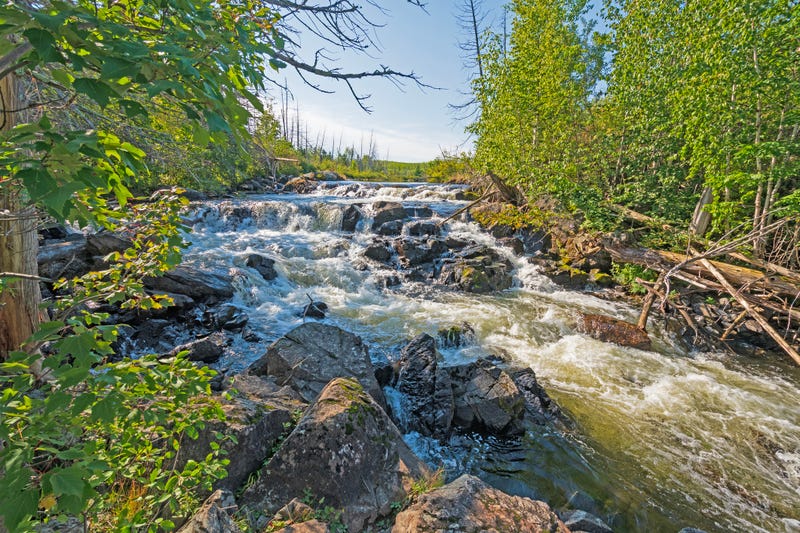
A former Minnesota Governor is sounding the alarm when it comes to the state's water supply.
Former Governor Arne Carlson (R) is holding a forum this week where he will take aim at lawmakers who he says have become "controlled" by special interest groups, particularly when it comes to the mining industry and the threat to the state's water supply.
"Since 2010, the Environment Committee has not heard a single bill that would reform mining or protect our water," says Carlson. "Now that's 13 years without a hearing. That's incredible."
Carlson questioned why the state is doing business with Glencore, which now owns Polymet or Northmet after a merger earlier this year. For years the group had been working with the state and federal governments to plan a mine right next to the Boundary Waters Canoe Area Wilderness.
"That company, in May of 2022, was convicted of criminal conduct," Carlson explains. "The biggest offense was the bribary of public officials."
The Swiss-based Glencore pleaded guilty in 2022 and agreed to pay over $1.1 billion to resolve the government’s investigations into violations of the Foreign Corrupt Practices Act (FCPA) and a commodity price manipulation scheme.
Glencore already owned 82% of PolyMet Mining and has long been the project’s main financial backer. In July, they offered to pay around $71 million to raise that stake to 100%, which would take St. Paul-headquartered PolyMet private.
In August this year, the Minnesota Supreme Court ruled that the state’s Pollution Control Agency improperly granted permits to the fiercely contested copper-nickel mine and concealed environmental concerns about the project, which critics say threatens to pollute Lake Superior and hurt tribal lands.
Justices found that state regulators not only ignored concerns from the federal Environmental Protection Agency about the northeastern Minnesota mine, but attempted to conceal EPA warnings from the public.
The Minnesota Pollution Control Agency “and the EPA sought to avoid public scrutiny and to hide the risk of illegal water pollution from the public eye,” Justice Anne McKeig wrote in a concurring opinion. “This secrecy is unacceptable.”
Pollution Control Agency spokeswoman Andrea Cournoyer said in a statement in response to the ruling that the agency continues to “seek clarity from the federal government and the company on how to address these critical water quality issues.”
In a statement, NewRange said it’s “confident that the additional proceedings will confirm the project protects water quality for all, and welcomes working with stakeholders on the permit.”
Then in November, the mine suffered a fresh setback when an administrative law judge recommended that state regulators should not reissue a crucial permit for the long-delayed project.
Administrative Law Judge James LaFave said in a ruling on November 28 that the design for the mine’s waste basin won’t adequately prevent water pollution. So, he said, the Department of Natural Resources should not reissue the main “permit to mine” for the project.
The next step is up to the DNR, which can accept or reject the judge’s recommendations or impose new conditions for reissuing the permit.
“It’s time for the Governor as well as Minnesota’s state agencies to take a hard look at whether it is time to pull the plug on the PolyMet mine project.” Paula Maccabee, an attorney for the environmental group WaterLegacy, said in a statement.
After that ruling, NewRange spokesman Bruce Richardson said that the company was “reviewing the ruling and evaluating our options.” The company says it can produce copper, nickel and platinum-group metals needed for the clean energy economy without harming the environment while creating jobs for northeastern Minnesota.
Despite the objections of Minnesota's Fond du Lac Band of Lake Superior Chippewa, NorthMet has claimed the mine would not taint the water supply and would advance the "responsible and sustainable development of copper, nickel, and platinum-palladium resources" in the mineral-rich area in Northern Minnesota.
Carlson says it's up to the public to demand changes that he says will ultimately create a government of the people, and not special interest groups.
